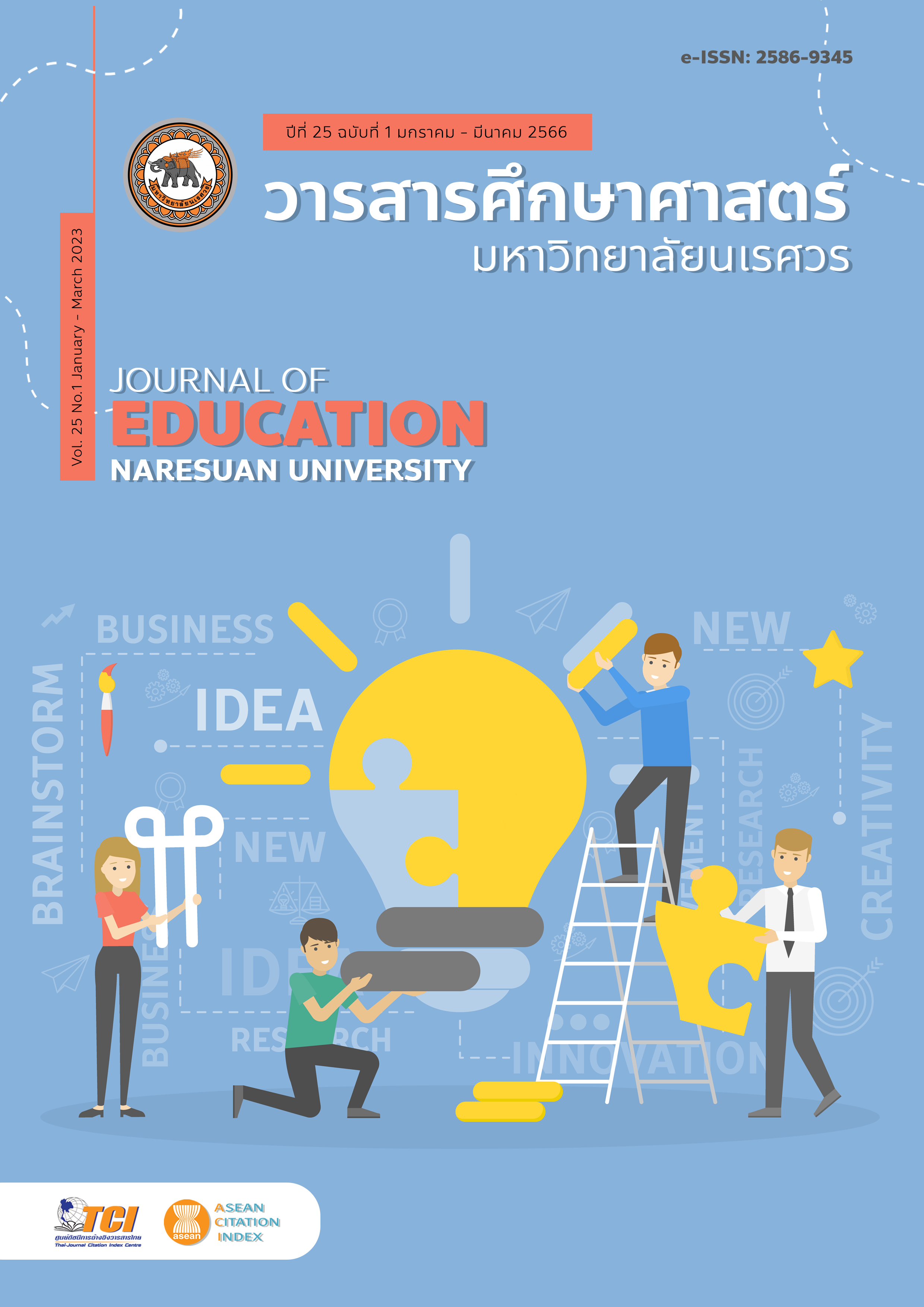THE MANAGEMENT MODEL FOR HIGHER EDUCATION INSTITUTIONS IN THE DIGITAL ERA
Main Article Content
Abstract
The rapid changing of the digital world demands guideline evaluation, especially in the administration of higher education institutions. This research aimed to examine the approaches involved in the administration of higher education institutions in the digital era. The research methodology employed in this study was conducted in three steps: 1) analysis of the components and management approach of the management model for higher education institutions in the digital era by literature reviews and interviewing of 7 experts, 2) developed and verified of the management model for higher education institutions in the digital era by 11 higher education experts, 3) evaluated the management model for higher education institutions by 38 higher education institution administrators. The results revealed that the management model for higher education institutions in the digital era consisted of five key components: (1) institutional objectives, (2) principles of higher education institutions, (3) scope of administrative work, (4) management processes, and (5) evaluation performance appraisal. According to the findings of this study, renowned experts regarded the management model for higher education institutions in the digital era as highly suitable. Furthermore, higher education institution administrators are of the opinion that the management model is highly feasible and offers superior benefits.
Article Details

This work is licensed under a Creative Commons Attribution-NonCommercial-NoDerivatives 4.0 International License.
The owner of the article does not copy or violate any of its copyright. If any copyright infringement occurs or prosecution, in any case, the Editorial Board is not involved in all the rights to the owner of the article to be performed.
References
Ameen, A., & Baharom, M. N. (2019). The assessment of effects of performance appraisal purposes on employee performance in Nigerian civil service. Journal of Social Sciences and Humanities, 16(5), 1-17.
Chansila, W. (2018). Strategic management towards improving educational quality. Phitsanulok: Rattanasuwan Printing.
Chiangkul, W. (2016). Report of the state of Thai education 2014/2015: How to transform Thai education to keep up with the world in the 21st century. Retrieved February 9, 2021, from https://spe.go.th/files/com_news_service/2016-05_5f47bdb1bf5fc31.pdf
Dubrin, A. (2010). Essentials of management. New York, USA: South-Western Cengage Learning.
Maesincee, S. (2017). Education administration to create Thailand 4.0 Bangkok. Bangkok: Faculty of Education, Chulalongkorn University.
Panich, V., & Mahaisavariya, B. (2019). The 10th annual honorary speech to Professor Dr. Kasan Chatikavanij at the 50th anniversary of His Majesty the King’s Name, 131st anniversary of Mahidol University: “University of the Future.” Nakhon Pathom: Research Administration Division, Mahidol University.
Report of Future of Learning by National Innovation Agency (Public Organization) with Future Tales Lab by Magnolia Quality Development Corporation Limited: MQDC (2021). Futures and Beyond: Navigating Thailand toward 2030. Retrieved November 16, 2021, from https://api.futuretaleslab.com/upload/1M8cl3Vh1pqgoSZf.pdf
Rothwell, W. J., Stavros, J. M., & Sullivan, R. L. (2016). Practicing organization development: Leading transformation and change (4th ed.). New Jersey, USA: John Wiley and Sons.
Srithammarat, Y. (1998). Public personnel administration. Bangkok: Thammasat University.
Thai Royal Government Gazette. (2019). SE Thailand, 2019. Retrieved 24 December 2020, from https://www.sethailand.org/Stanford_University


